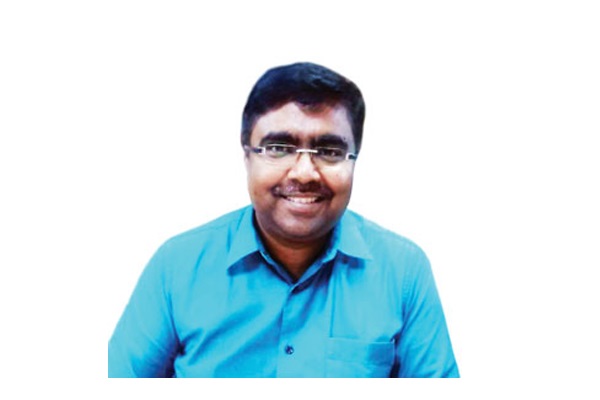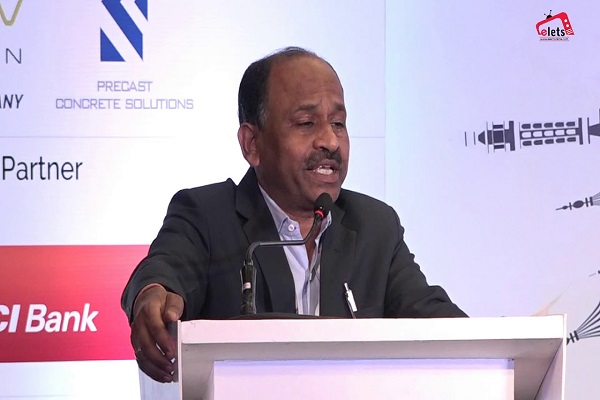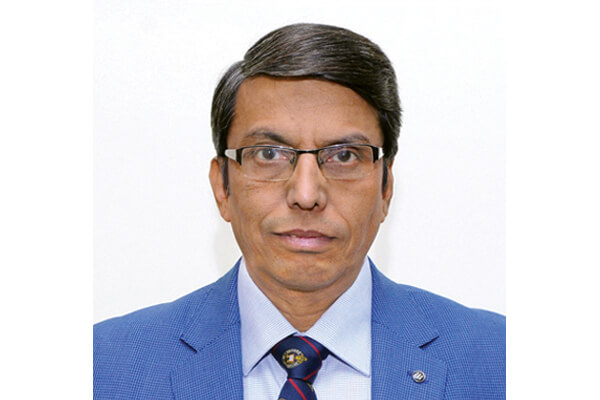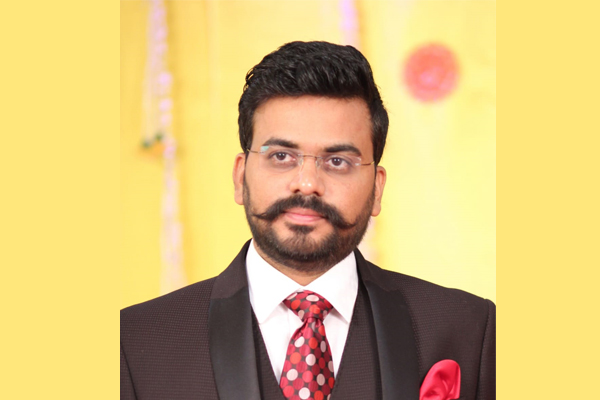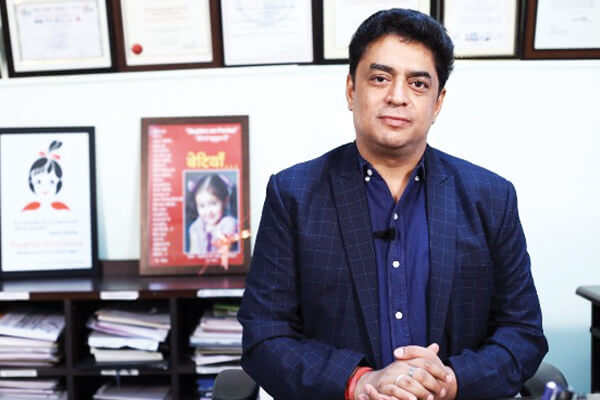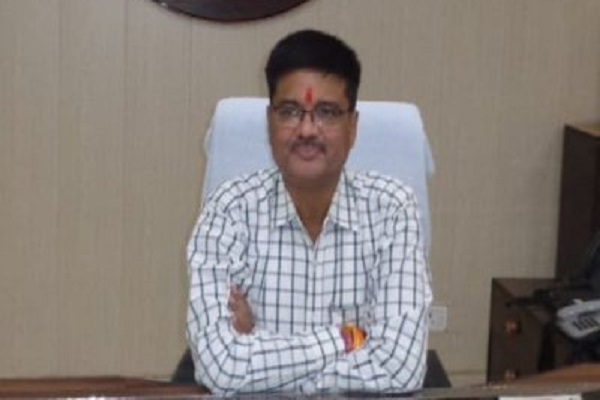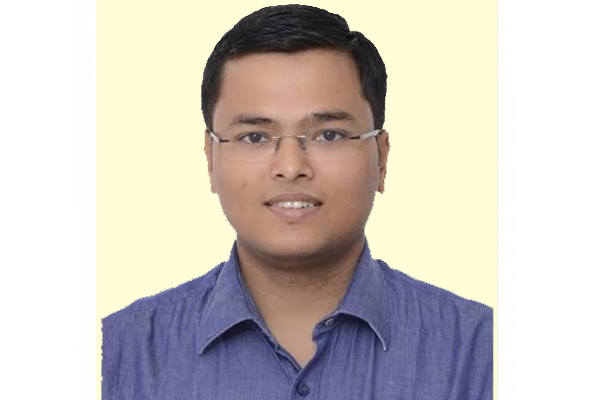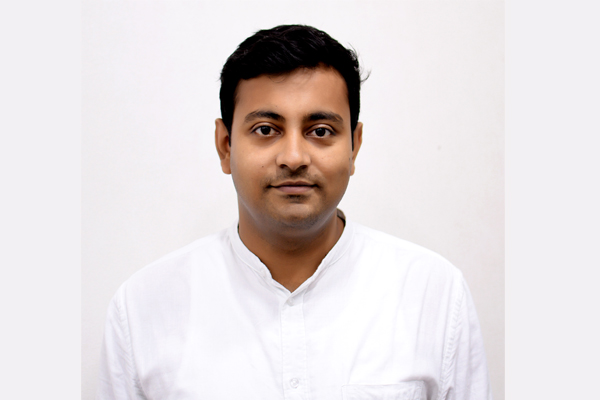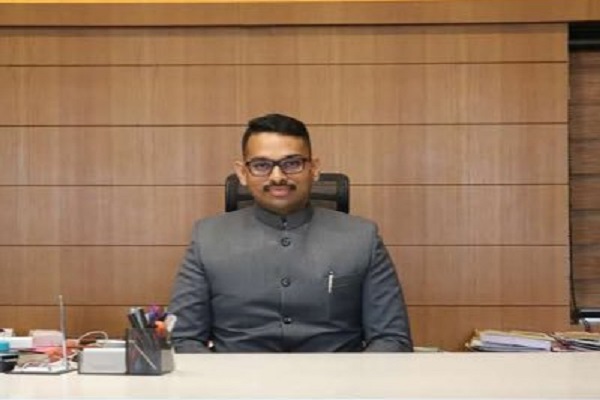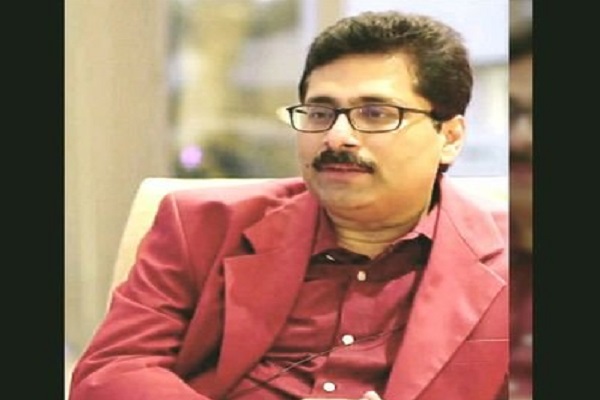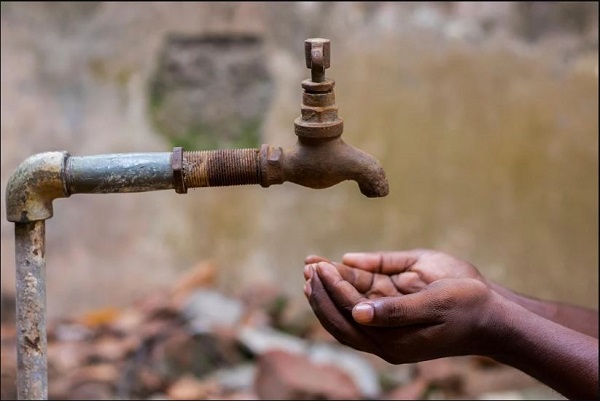
Since the onset of COVID-19 crisis, the focus has been constantly on its outbreak. It’s true, the magnitude of the viral outbreak was unexpected and its novelty made it hard for the world to contain it. Government’s worldwide are taking stringent measures to fight the viral outbreak. In the wake of this unprecedented crisis, the focus has been shifted completely and many important subjects like water resource management, pollution, waste management, sewage issues, and more are compromised. Concerned about the significance of ‘water availability and issues surrounding it’, Dr Ravi Gupta, Founder and CEO Elets Technomedia, hosted a webinar with an eminent panel to discuss ‘Managing Water Crisis during COVID-19 Pandemic’. The speaker panel included – Avinash Mishra, Advisor, NITI Aayog; Heera Lal, Additional Managing Director, National Health Mission; Kalpana Ramesh, Founder, The Rain Water Project; VK Madhavan, CEO, Water Aid; and Rajesh Bhardwaj, Director Global Business, Effibar India.
The webinar commenced with the speakers highlighting the importance of addressing the water issue as it is the onset of summer and soon many areas in the country would struggle for water, especially drinking water. Also, the speakers were of the view that there is a need to have a plan for the post-COVID-19 situation.

Avinash Mishra, Advisor, NITI Aayog
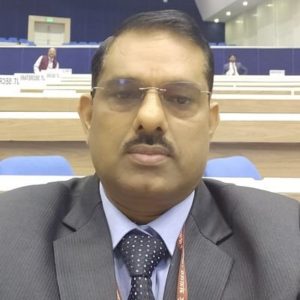 Mishra started off with the note, “It is easier to meet the water requirements presently as many industries are not operating. However, we need to look at what happens once the lockdown is over and the industrial demand for water supply will pitch in.”
Mishra started off with the note, “It is easier to meet the water requirements presently as many industries are not operating. However, we need to look at what happens once the lockdown is over and the industrial demand for water supply will pitch in.”

He stressed on the need to inculcate behavioural changes among citizens in their water usage habits. Also, the authorities must focus on using water judiciously. “We waste 30-38 percent in agriculture, total transmission and distribution loss of drinking water in cities are 40-45%”, Mishra added.
Moreover, there should be a water regulatory authority and it should regulate the amount of water to be supplied for agricultural use, domestic use, commercial use and more, said Mishra. He also emphasised on developing a digital water management system for monitoring of the resource and its usage. Furthermore, with the help of such a system in place loopholes in the transmission and distribution of water can be tracked and improvements can be done.
Apart from monitoring and management systems, Mishra was of the view that a corpus needs to be created and that will help in providing appropriate funds for the water projects which are, in general, quite expensive. “We should invite private players as well. Those private players will not only be providing funds but will also bring in state-of-the-art technology. This can also help in bringing down the gestation period of the projects”, he added.
Heera Lal, Additional Managing Director, Uttar Pradesh National Health Mission (NHM) and Additional Project Head for UP SAC
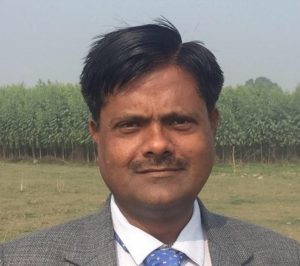 Lal focused his views on the importance of citizens participation and said, “The govt has only 10 percent capacity at a time. In a situation like COVID-19, we need 100 percent and it is only possible by public participation.” There is a need to make people aware of the water bodies nearby, their conservation, preservation and their significance, he added.
Lal focused his views on the importance of citizens participation and said, “The govt has only 10 percent capacity at a time. In a situation like COVID-19, we need 100 percent and it is only possible by public participation.” There is a need to make people aware of the water bodies nearby, their conservation, preservation and their significance, he added.
In order to enhance our functioning towards conservation of water bodies, we need to create a standard operation procedure (SOP) and mark who all are the stakeholders and what are their roles. If each of us fulfils our responsibility properly then the water issues can be dealt with easily, said Lal.
Talking about the water and environment, Lal emphasized on ‘Jal and Jungle’. He said that there is a need for people to understand that jungles will only sustain when water resources are taken care of.
To improve the scenario and do away with the recurring water issues in the country for the long run focus needs to be shifted to methods like rainwater harvesting to decentralise storage of water for recharge groundwater which can be used in times of crisis, as now in times of COVID-19. Proper maintenance of tanks, ponds, lakes for groundwater recharge, livestock is required. Also, shallow aquifers like dug wells which have been abandoned can be reused. Greywater management in another sphere where authorities need to improve both in urban and rural areas. And, most important is groundwater management, Lal added.
Highlighting on the behavioural change that has occurred in the people with time he said that we do not trust our government sources but those private companies selling processed water packaged in bottles. Our relationship with water has changed, we are no more concerned about where the water is coming from (the source) but only concerned about if our taps are pouring enough or not.
Answering on the effect of COVID-19 on water resources, he said, due to the viral outbreak the resource is being even more consumed as people are today more cautious and are washing hands time and again. Therefore, the authorities need to consider the additional requirement of water.
VK Madhavan, Chief Executive Officer (CEO), Water Aid
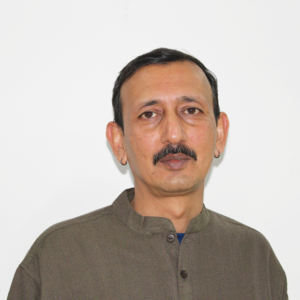 Unlike the other panellists, Madhavan started off on a different note emphasizing on the need for discussions on water issues saying that the country is facing the onset of summers and in coming months many areas in India will be facing drought-like conditions.
Unlike the other panellists, Madhavan started off on a different note emphasizing on the need for discussions on water issues saying that the country is facing the onset of summers and in coming months many areas in India will be facing drought-like conditions.
Highlighting the dire need for the authorities to take action beforehand to prevent hardship of the poor residing at those remote corners where piped water has not yet reached, he said, “We need to identify which are the hotspots which face water problems every summer. So that we can provide water in the time to come and water tankers can be made available.” Taking forward the discussion, he said, “There is a need to activate a toll-free number for people to call and report if they don’t have access to water.”
It is urgently required to identify and recognise those who are living in the outskirts of urban areas and metropolitan cities and lack pipe water supply and enough storage spaces so their water requirements can be met when needed. Considering the COVID-19 situation, Madhavan added that the authorities have to put in extra efforts to ensure social distancing and hygiene near water tankers while supplying water to households. Also, appropriate sanitation facilities with apt water supply must be ensured in the healthcare facilities and quarantine centres, Madhavan added while talking about the COVID-19 aspect.
Madhavan is of the view that the Government can make use of the informal sector workers and get the stormwater drains and other local drainages cleaned so that water clogging during monsoons can be prevented and aquifers can be recharged with rainwater.
When questioned about the installation of Reverse Osmosis (RO) systems, he said, “We need to install RO only for certain water quality and in most cases, it is not needed. Secondly, the RO systems waste half of the water that enters it, Madhavan added.
Kalpana Ramesh, Founder, The Rain Water Project
 Supporting Lal’s views and taking it a step further, Kalpana Ramesh said that people need to make it a habit to save water and consume only to the extent it is needed. “People can conduct their own house’s water audit and mark their usage to ensure not a single drop is wasted”, she added.
Supporting Lal’s views and taking it a step further, Kalpana Ramesh said that people need to make it a habit to save water and consume only to the extent it is needed. “People can conduct their own house’s water audit and mark their usage to ensure not a single drop is wasted”, she added.
Moreover, she talked about spreading awareness among the people about water conservation. Giving an example of the Chennai water crisis she said, people are in a listening phase today and we need to make them understand how to avoid such crisis from occurring again or in someplace else.
Highlighting the importance of awareness among the citizens for water and sanitation she Kalpana said, the people should also be made aware of greywater management, how it is done and its significance. “They do not know that streets are connected to aquifers and aquifers are further connected to water bodies”, she added. Once these things are clear then only people will understand that they have different borewells but the aquifer below is a common source. So, think about that source and the individual borewell, Kalpana stressed.
Further, backing Avinash Mishra’s views on the effect of COVID-19 situation on the water resources, she said that once the lockdown is over a sudden rise will be seen in the water demands which will be a challenge for the suppliers.
Describing one of the initiatives she has taken, Kalpana said, “We have launched blue Hyderabad. In this project, we will be conducting a door-to-door survey and analyse water issues and come up with solutions.
Rajesh Bhardwaj, Director of Global Business, Effibar India
 Bhardwaj raised concern on spreading awareness among people and their engagement in water conservation saying, “We should not wait for the time when we need the public to come up but we need to get them involved in activities of conserving water even during normal day-to-day operations.” We need to empower common man with knowledge and methods that you don’t need to store up water but use it efficiently, he added.
Bhardwaj raised concern on spreading awareness among people and their engagement in water conservation saying, “We should not wait for the time when we need the public to come up but we need to get them involved in activities of conserving water even during normal day-to-day operations.” We need to empower common man with knowledge and methods that you don’t need to store up water but use it efficiently, he added.
Further, Bhardwaj elaborated about one of the projects that Effibar is taking up. He said that the company is working to develop an activated charcoal-based water purifier system with a special polymer. The system can be directly used on taps.
On a concluding note, Rajesh said, “Nature will heal itself, we just need to align our efforts with nature in an apt manner.”
Be a part of Elets Collaborative Initiatives. Join Us for Upcoming Events and explore business opportunities. Like us on Facebook , connect with us on LinkedIn and follow us on Twitter, Instagram.


